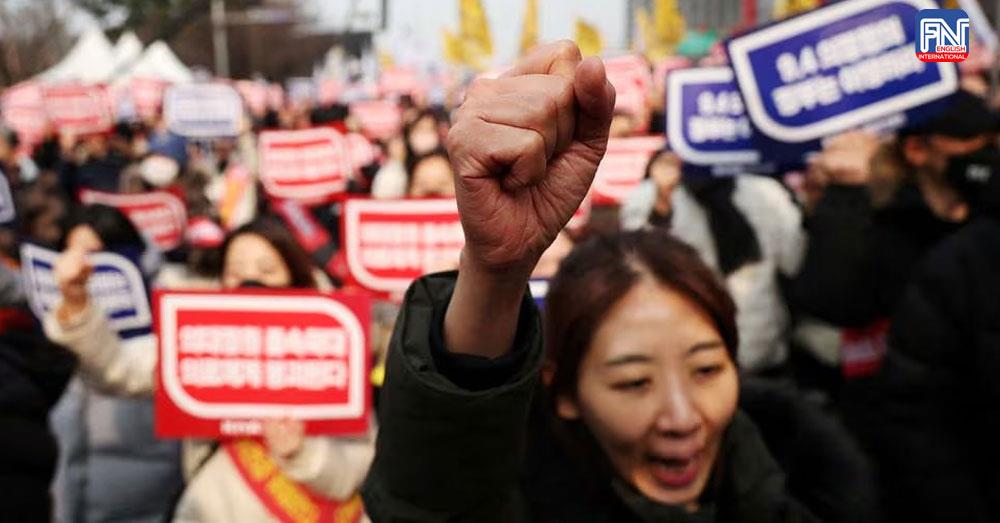SEOUL, Mar. 12 (Reuters) - South Korea's government opened a hotline for doctors on Tuesday that the health minister said was intended to support physicians who faced harassment or peer pressure if they chose not to join a mass walkout over healthcare reform plans.
Health Minister Cho Kyoo-hong defended the reforms, which include boosting the number of medical school students, as beneficial for the work conditions of intern and resident doctors, a key demand of the nearly 12,000 trainees who have left their posts.
Cho accused some young doctors of harassing trainees who had decided not to take part in the walkout or were hoping to return to work.
"The government will take care so that trainee doctors can return to work and remain by the patients without worry," he told a government meeting monitoring the doctors' action, referring to the hotline.
The move comes amid little sign of an end to the three-week walkout and as some medical professors also threatened to join the protest by tendering their resignations.
As of Monday, 5,556 doctors who had left their posts had been served advance notices specifying that authorities would start suspending their medical licences if they failed to justify their action, Cho said.
Doctors taking part in the dispute have been particularly vocal in protesting against a plan to increase annual medical school admissions by 2,000 starting in 2025, saying it will worsen the quality of medical education and do little to improve pay and work conditions.
The government says its package of reforms include plans to improve pay for doctors in essential fields and ensure proper medical services are available outside large cities.
Boosting the number of doctors has strong public support, although critics have accused President Yoon Suk Yeol of picking a fight over medical reforms for political gains ahead of parliamentary elections in April.
Professors at the Seoul National University medical school vowed at a meeting to quit next week if the government did not look for a compromise over the dispute, joining the faculty of another major teaching hospital threatening to take action.
Up to now, most practicing physicians or medical school professors have not directly joined the protest.
Dr. Jin-Haeng Chung, professor of pathology at Seoul National University, said medical professors were nearing breaking point due to the extra workload but backed the trainees.
"As professors, we cannot leave the side of our students... when they are on the verge of facing judicial action and cannot stay next to the patients where they belong and cannot perform their studies," said Chung.
Many trainee doctors were seriously considering practising abroad, heading to the United States, Europe or elsewhere, sparking concerns about a brain drain, Chung said.

Photo from Reuters